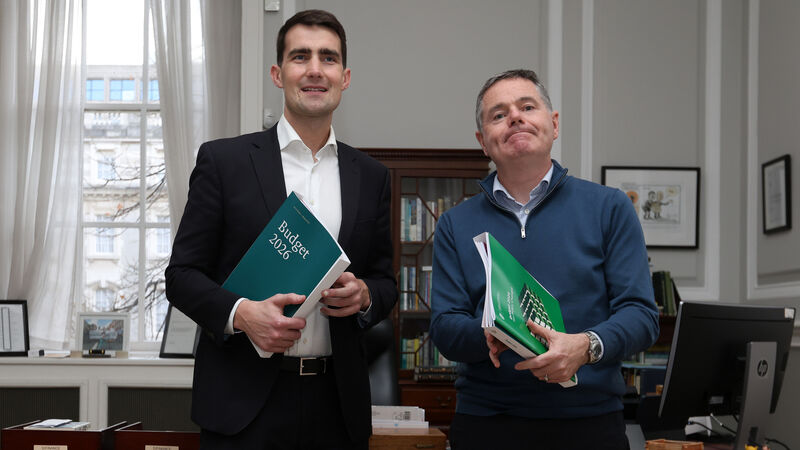Budget 2026: €10 rise in State pension and core welfare rates secured in late night talks

Minister for public expenditure Jack Chambers and finance minister Paschal Donohoe put the finishing touches on Budget 2026 ahead of its announcement on Tuesday. Picture: Sasko Lazarov/© RollingNews.ie
Core social welfare rates will rise by €10 and fuel allowance by €5 in Tuesday's budget, with money being made available to increase student grant thresholds, provide thousands more childcare places, and add €500m to the disabilities budget.
The Government is set to announce Budget 2026, which will see a Vat cut for hospitality businesses, the continuation of the 9% Vat rate on energy, and a Vat cut for the building of new apartments. There will not, however, be a personal tax package.














